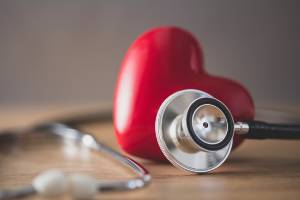Blog
Who is Liable for a Crash Caused by a Sudden Medical Emergency?
Posted on behalf of Peter T. Nicholl in Car Accidents Published on January 18, 2021 and updated on March 15, 2022. If you get hit by another car whose driver was in violation of traffic laws, the other driver is most likely going to be held financially liable for your damages. However, there can be exceptions to this general rule. For example, the other driver may not be held liable if he or she was experiencing a sudden medical emergency, like a heart attack, stroke or seizure.
If you get hit by another car whose driver was in violation of traffic laws, the other driver is most likely going to be held financially liable for your damages. However, there can be exceptions to this general rule. For example, the other driver may not be held liable if he or she was experiencing a sudden medical emergency, like a heart attack, stroke or seizure.
Below, we discuss this scenario and how liability may be assigned. Even though the driver was experiencing a medical emergency, it is possible he or she should not have been behind the wheel because he or she was more prone to this medical emergency. For example, those with a seizure disorder are often prohibited from driving, as are those who are recovering from a stroke.
If you have questions about liability for a car crash that caused your injuries, give us a call today to schedule a free legal consultation. There are no upfront fees for our services. At Peter T. Nicholl Law Offices, there are no fees unless we recover compensation on your behalf.
When Does the Sudden Medical Emergency Defense Apply?
When the at-fault driver says the crash was caused by a sudden medical emergency and he or she should not be held liable, he or she is using the sudden medical emergency defense.
This can be a legitimate defense if the driver has no history of suffering these kinds of emergencies and is not under a doctor’s orders not to drive. If the driver was not supposed to be driving because he or she might suffer a stroke or seizure, he or she would be liable for an accident because he or she should not have been behind the wheel. A medical emergency makes it nearly impossible to maintain control of a car and operate it in a safe manner. A reasonable person would not drive if he she had been told not to by a doctor.
If the other driver asserts this defense, you should seriously consider discussing it with a licensed Maryland auto accident attorney. You want to be sure this is a legitimate defense and not just something being used to avoid liability. The other driver should be required to provide evidence to prove this defense is legitimate.
If a driver is a diabetic and did not eat all day, he or she would be more likely to pass out. Getting behind the wheel would put others in danger. He or she should not be able to use the sudden medical emergency defense. However, if someone without a history of heart problems suffered a heart attack, he or she may be able to use the defense.
How do I Pursue Compensation?
Was another driver involved in the crash? Does he or she bear any responsibility?
If so, you may be able to pursue compensation from this person. However, if the sudden medical emergency defense applies, you will most likely be unable to pursue compensation from the driver using that defense.
You could potentially turn to your own insurance policy if you have first-party coverage. For example, Maryland requires insurers to offer drivers a minimum of $2,500 in personal injury protection (PIP). (Drivers can choose to waive this coverage.) PIP pays for your medical expenses up to the limits of your coverage. PIP may also provide coverage for lost wages.
If you chose to buy collision coverage, you may be able to use it to pay for damage to your vehicle. Medical payment coverage may also be used to pay for medical expenses, but this is an optional coverage so you can only use it if you purchased it when you bought your car insurance.
Call Today to Schedule a Free Initial Consultation
Have questions about what to do after suffering an injury in a car crash? Struggling to recover compensation from the insurance company?
At Peter T. Nicholl Law Offices, we have recovered millions on behalf of personal injury victims in Baltimore and the surrounding areas of Maryland. We are prepared to guide you through every step in the legal process.
Need legal help after an accident? Call 410-907-3957 today.

